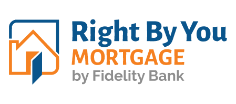Buying a home can be challenging under normal circumstances, but it’s particularly difficult for borrowers who don’t have a traditional source of income from a full-time job. Such is often the case for self-employed borrowers or older buyers who are living off their retirement income or savings.
If you fall into this group, an asset-based mortgage might be an option. But what exactly is an asset-based mortgage, and how does it work?
Using What You Own
Most mortgage products are based largely on a borrower’s income, which is used to help determine whether they can afford their monthly mortgage payment. With an asset-based mortgage, however, the primary qualifying factor is the value of the borrower’s liquid assets, which is cash or anything that can easily be converted to cash, such as the funds in your bank and checking account or any CDs, stocks or bonds you own.
For these reasons, asset-based mortgages can be a good choice for borrowers with a high net worth or borrowers who have a significant amount of assets but irregular income, such as someone who is retired or owns their own business.
The amount you’re able to borrow for an asset-based mortgage is based on a percentage of the total value of eligible assets. In most cases, you can use most of your retirement and investment account savings and your liquid assets.
To come up with an estimated monthly income, your assets are added up and divided by 240, regardless of the length of the loan term. For example, if you have $1 million in eligible assets and are looking for a 30-year mortgage, your monthly income from your assets would be calculated at $4,167.
Pros and Cons
We’ve already touched on one of the biggest benefits of asset-based mortgages, which is that borrowers don’t need regular income to qualify. An asset-based mortgage may also enable borrowers to qualify for a higher loan amount, depending on the value of the assets they have.
If borrowers meet the required guidelines, the interest rate for an asset-based loan is the same as it would be for a borrower that qualifies using regular income. Plus, if a borrower has a 401k or other tax-deferred retirement account, they may be able to use those funds for a down payment and not have to pay a penalty.
On the other hand, you will need good credit to get an asset-based loan, and you’ll need to provide your lender with plenty of paperwork documenting and verifying your assets. After you apply, your lender will conduct a full review of your assets before giving you final approval.
Is an Asset-Based Mortgage Right for You?
You may be wondering: If someone has enough assets, why not buy a home with cash? For one thing, it’s not always a good idea to put too much of your savings into a piece of property, where it’s not easy to access. By getting an asset-based mortgage, you’re able to keep more money on hand in case you need it.
If you’re wondering whether Right By You Mortgage provides asset-based mortgages, the answer is yes. We offer asset-based mortgages for both single and two-unit primary residences, as well as second homes. We also offer asset-based refinance loans in which no cash is taken out.
To qualify, the mortgage must have a maximum loan-to-value ratio of 80%, which means you’ll need a down payment of 20% of the loan amount. You’ll also need to subtract certain funds from your total eligible assets, such as any down payment and closing costs, any gift funds or borrowed funds, and any assets that are used as collateral for another loan.
There may be other guidelines and requirements that apply too. But if you think an asset-based mortgage may be right for you, one of the loan experts at Right By You Mortgage would be happy to tell you more. Just give them a call at 1-877-552-2242 or send an email to inquiries@rightbyyoumortgage.com.









